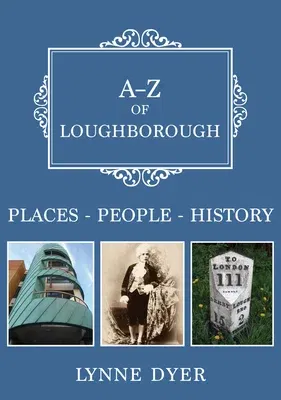So, what is the significance of the seventeenth-century Sir Thomas Abney
to Loughborough, and what is the connection between the young Princess
Alexandrina, later to become Queen Victoria, and Loughborough? What is
the history of the Bat House, and what is the mysterious Building N on
the university campus? Which industry has its last remaining factory in
Loughborough? What is the meaning of local words like 'jitty' and 'Ingle
Pingle', and why is Bottleacre Lane so named? Being on the edge of the
Charnwood Forest, Loughborough has woods and spinneys in abundance, but
there is still plenty of space for allotments and meadows. Watercourses
criss-cross the town like arteries, running from the heart of the
Charnwood Forest, into the River Soar or the Grand Union Canal, and
artificial bodies of water have been created on former industrial sites.
In this alphabetical tour around the university market town of
Loughborough, the second largest town in Leicestershire after the county
town of Leicester, the author invites you to learn about the town's
history through its buildings, structures, streets and thoroughfares;
through its firms and local people; and through its features like
waterways, woods and fields. With tales of fairs, follies and families,
this book dips into some of the most interesting and intriguing parts of
Loughborough's history. But do you agree with Daniel Defoe that
Loughborough is a 'market town ... but of no great note?' The author
sets out to gently persuade you that there is much more to Loughborough
than at first might meet the eye.

